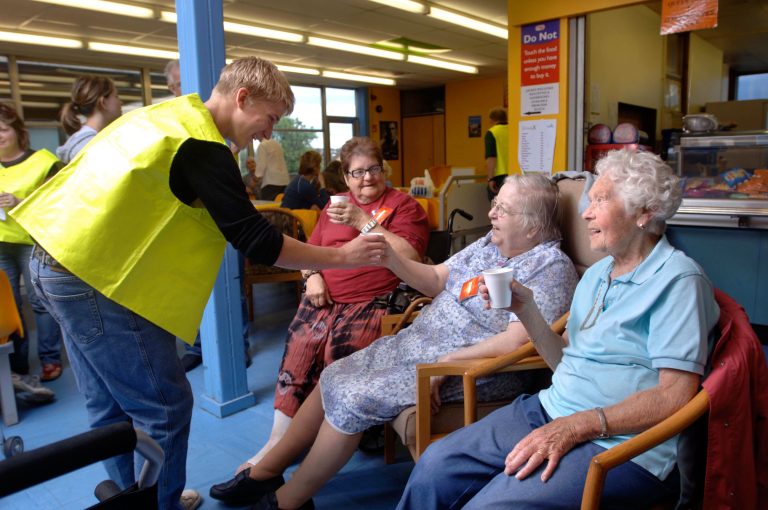There is no concern more central to the success of the country and the new government than growing the economy. In light of this, the government has committed to raising the employment rate to 80 per cent, a laudable goal that, if achieved, will go a long way towards helping the government’s meet its stated missions – in particular growth – but also in relation to health and opportunity.
For the new government to succeed in its goal, tackling inactivity is a key challenge to overcome. There are currently around nine million people out of work who could be contributing to the UK’s economy, driving growth, reducing the welfare bill and improving their own living standards simultaneously. However, this group of people who are not considered to be ‘actively’ seeking work have been neglected by the employment support system over recent decades. And this problem has only worsened as employment levels have failed to bounce back since the pandemic as they have done in other comparable economies. More recent issues centre in particular on a rise in those out of work with long-term illness, which includes a large number of young people with mental health problems preventing them from finding sustainable and fulfilling careers, and a high number of workers aged over 50 who left the workforce during the pandemic and have not returned.
Recent examples of devolved employment support in London, Manchester and in particular Northern Ireland have seen local areas and leaders empowered to tailor support to the specifics of their local labour markets, local demographics, and other local nuances. Despite the limited scope of devolved support, the evidence base for devolution of employment support commissioning and delivery improving outcomes is strong. The government will publish a White Paper this autumn on getting Britain working, and the new Secretary of State for Work and Pensions has made clear that local areas and leaders will be supported in tackling employment issues locally.
FGF’s latest report, Support for the Future: Making a devolved employment support system work, in partnership and with the support of AKG, explores how the government can tackle the challenge of economic inactivity in the UK by devolving powers and funding to combined authorities, creating and utilising local labour market partnerships and localising and integrating provision. The report outlines the necessary conditions for further devolution of employment support to be successful and the role of the Department for Work and Pensions (DWP) in a partially-devolved employment support system.
The report recommends that multi-year funding be devolved to allow local areas to commission and deliver employment support programmes themselves, particularly those that focus on people furthest from the workforce; and that extra funding for managerial and commissioning capacity be provided to ensure they are properly resourced.
Following the success of Northern Ireland’s devolved and localised employment support, our report supports the Institute for Employment Studies’ recommendation that local areas are covered by local Labour Market Partnerships that lead on labour market strategy for their respective area. These partnerships would drive solutions that match employers’ needs with the right skills pathways and would take local nuance into consideration to find bespoke solutions for people and place.
The report suggests that, to facilitate this devolution, the DWP should guide combined authorities in their new commissioning role and oversee the partially-devolved landscape with a relentless focus on outcomes data.
There is broad and deep potential in the UK outside of our current workforce. But for interventions to be efficient, we must be bold in how we apply them. Devolution of employment support has the potential to turn the UK’s inactivity problem on its head, but it must be pursued with potential pitfalls in mind and in a way that gives local areas genuine power to solve their local economic problems.
—
Reflecting on the report’s publication, Ayden Sims, UK Country Manager, AKG, said:
“The new Government has rightly identified current levels of worklessness as the greatest employment challenge for a generation. Tackling this will require a localised, holistic approach that factors in the health, skills and housing needs required to get people with the most complex challenges back into work.
“Key to this will be ensuring that the UK’s regions are provided long-term funding certainty to make long-term investment decisions, and in turn enable providers to deliver holistic long-term programmes that those out of work so desperately need.
“However there is an important role for the DWP here. Given the complex tapestry of employment support in the UK, it is the responsibility of central government to set the framework and ensure consistent high quality support is available in every region of the country”.
Nathan Yeowell, Director of The Future Governance Forum, added:
“Supporting more people into fulfilling, sustainable work is essential to addressing Britain’s economic inactivity crisis and advancing the government’s all-important growth mission. As we argue in the report, giving communities more stake in and control over the delivery of employment support services will be a key part of the answer.
“As the success of similar models in Greater Manchester, London and Northern Ireland show, a place-based approach to employment support works – raising service standards and supporting local growth at the same time.
“The government’s pledge to devolve new powers over employment support as part of its broader commitment to devolution is encouraging. However, as the report underlines, the devil will be in the detail.”





